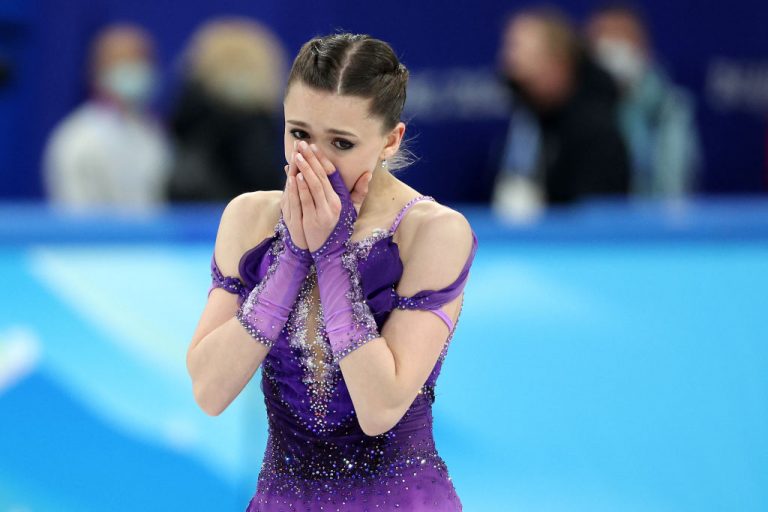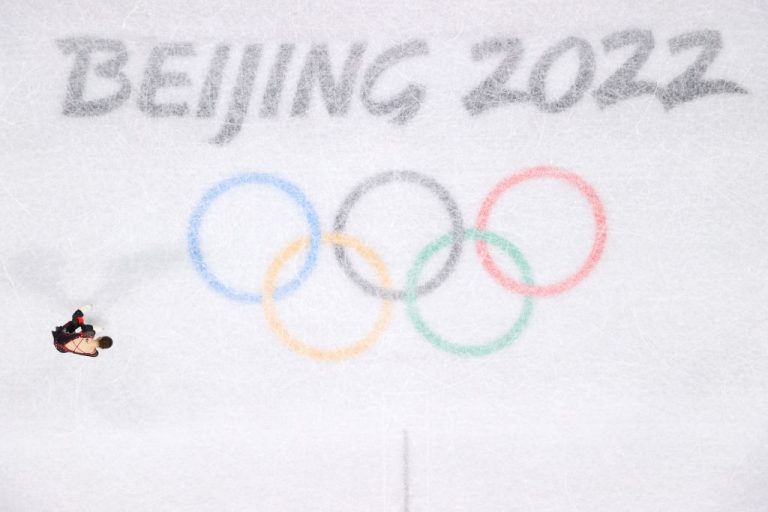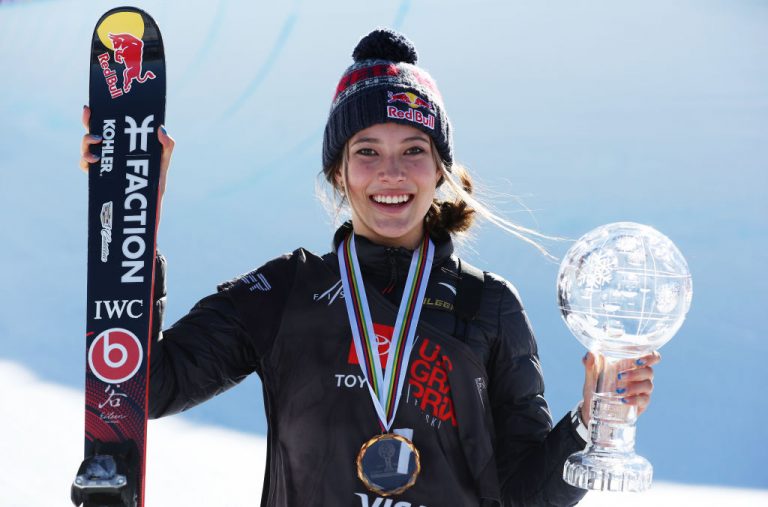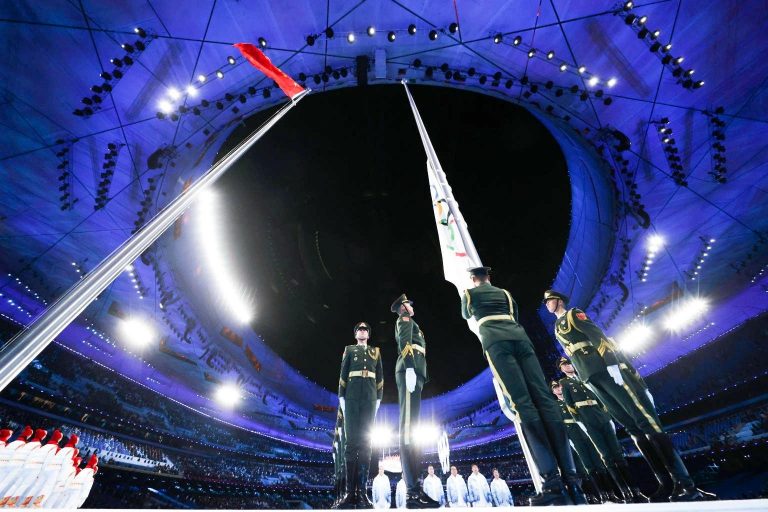Russian figure skating star Kamila Valieva broke into tears after an exceptional performance in the women’s short skating program in her first appearance since the controversial doping ruling allowed her to continue competing at the 2022 Beijing Winter Olympics.
The 15-year-old athlete had tested positive for three banned substances that help pump more blood to the heart in order to enhance athletic performance.
Though she stumbled on her triple Axel opening jump, the teen from Moscow held it together until the end of her routine, nabbing a top score for the short program segment. The result allowed her to qualify for yesterday’s free skate medal event.
Unfortunately, this is where it all ended for the young athlete as she broke into tears on the ice and missed the podium with a fourth place finish. The crowd could be heard encouraging Valieva with the warmest applause of the night, even as her coaches looked on with dejected expressions.
Olympic Committee President criticizes Russian entourage
For more than a week, Valieva had been buried under a mountain of distractions: the integrity of her success and her skills were under attack, as was the character of the adults around her.
She had stepped onto the ice wearing the same expressions she’s worn all week at the Beijing Games: nearly expressionless, trying to block out all outside distractions and controversies, or at least not acknowledge them. After finishing her free skate routine, she buried her face in her hands.
Success
You are now signed up for our newsletter
Success
Check your email to complete sign up
“Why did you let it go?” her coach Eteri Tutberidze asked her in Russian on live television. “Why did you stop fighting? Explain it to me, why? You let it go after that axel.”
Valieva did not reply and simply looked down as she fought back more tears.
International Olympic Committee (IOC) president Thomas Bach criticized Valieva’s entourage for their “tremendous coldness” toward the skater after her “mistake-filled free skate” in the free skate medal event.
“When I afterwards saw how she was received by her closest entourage, with such, what appeared to be a tremendous coldness, it was chilling to see this,” Bach said at a news conference today. “Rather than giving her comfort, rather than trying to help her, you could feel this chilling atmosphere, this distance.”
Bach’s tone surprised Olympic observers — accustomed to hearing him defend Russian athletes despite the massive 2014 doping scandal in Sochi — with his comments even drawing a quick rebuke from Moscow.
“He does not like the toughness of our coaches, but everyone knows that in elite sports, the coach’s toughness is key to the students’ victories,” Kremlin spokesman Dmitry Peskov told reporters today.
Russian athletes under scrutiny
Valieva’s doping scandal is reminiscent of previous Games where Russian athletes were shrouded in controversy over the use of illegal performance enhancing drugs. Even the Olympics organizers prefer to designate Russian athletes collectively as the “Russian Olympic Committee,” to avoid the name of the country, its flag, and anthem as a punishment for past doping scandals.
This is the third Olympic Games where Russia is competing under enhanced restrictions in the aftermath of “widespread state-sponsored doping and cover-up scheme at the 2014 Sochi Games,” said Adam Rippon, a coach for the American figure skating team.
Rippon argued that Valieva should not have been allowed to compete in the first place after testing positive for a banned drug.
Valieva’s case also drew comparisons to Sha’Carri Richardson, an American track sensation, who was banned from competing at last year’s Tokyo Olympics after testing positive for marijuana. Unlike steroids, however, marijuana is not usually considered a performance enhancing drug.
Although many have called for stricter regulations for Olympic athletes, Russia has remained a force at the Games, second in the medal count behind Norway.













